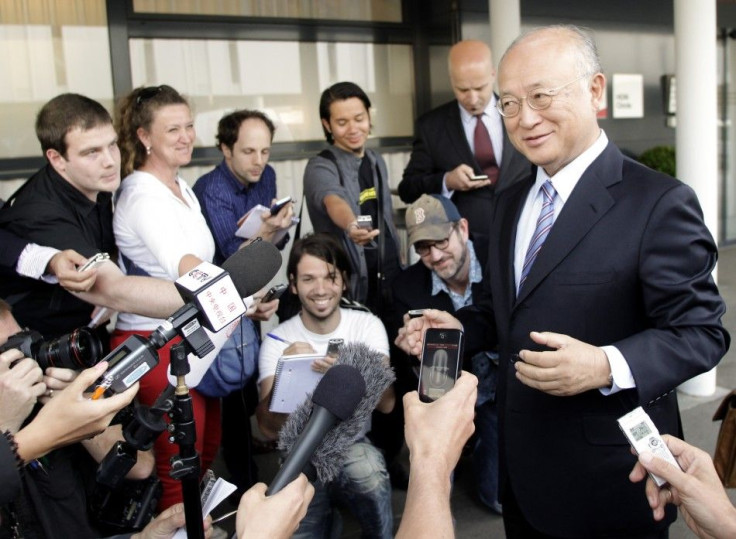Iran Closes Door On Inspectors, Promises To Continue Uranium Enrichment

Iran announced Sunday it will continue enriching high-grade uranium while adding a nuclear power plant in 2014 and rebuffed calls to let U.N. inspectors visit the suspected home of the country's nuclear weapons research.
We have no reason to retreat from producing the 20 percent because we need 20 percent uranium just as much to meet our needs, said Iran's nuclear chief Fereydoon Abbasi-Davani, according to the New York Times.
Nuclear watchdogs have eyed Iran's Parchin complex as the central hub of any nuclear weapon's activity, though Tehran has repeatedly denied harboring such ambitions. The government has denied access to the complex, calling it a military site.
The reasons and document have still not been presented by the agency to convince us to give permission for this visit, Abbasi-Davani said.
Iran met over two days last week in Baghdad with representatives from six world powers -- the U.S., U.K. China, France, Germany and Russia -- set on halting the nation's nuclear work, with no progress in talks.
During the gathering, Western diplomats reportedly offered Iran spare parts for a civilian aircraft in exchange for a promise to end high-level enrichment activities.
Giving spare parts for civilian aircraft is considered too little and too insulting for Iran, while it expected easing of oil sanctions, said a senior Asian diplomat in Tehran, according to the Financial Times.
The group will meet again in Moscow next month to continue talks in an attempt to avert a potentially catastrophic confrontation in the Middle East.
The International Atomic Energy Agency last week reported satellite images showing extensive activities at Parchin. Though the report lacked specifics, Western diplomats pointed to the activities as a clean-up effort, with Tehran trying to cover its tracks, according to Reuters.
IAEA chief Yukiya Amana said last week after visiting Tehran that Iran was close to allowing inspections at nuclear facilities, though some more issues remained.
Concerns have grown over Iran's nuclear capabilities, after it was discovered it began enriching uranium to 20 percent fissile purity, progressing toward the 90 percent needed to make a weapons-grade nuclear arsenal.
There is no reason for us to give up enriching uranium to 20 percent because we produce this fuel only to meet our needs, no more and no less, Abbasi-Davani said.
He said Iran had before mulled halting production of 20 percent uranium after it stockpiled enough to fuel domestic power plans, according to the Financial Times. The intimations of a possible deal came as U.S. and EU energy and banking sanctions promised loomed on the horizon date, with their effective date on July 1.
Tehran has contested claims to nuclear weapon ambitions, saying the uranium is needed to fuel power plants.
© Copyright IBTimes 2025. All rights reserved.





















